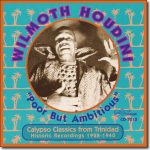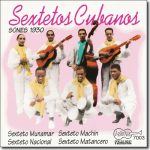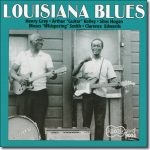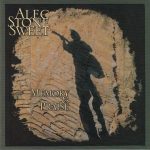Masters Of The Banjo – Various Artists / Arhoolie CD-421
$14.98
In stock
Description
CD 421
Live performances from the acclaimed tour Masters of the Banjo, organized by the National Council for the Traditional Arts.Styles include bluegrass, claw-hammer, two-finger, Appalachian melodic, African krar, and Irish tenor banjo. Recorded November 1993.
1.The Eldest of All ‚ (The Nile) Seleshe Damessae (3:37)
2.A Family Quarrel on Sunday ‚ Seleshe Damessae (3:17)
3.If You Come, Come, If You Go, Go ‚ Seleshe Damessae (2:10)
4.John Brown’s Dream ‚ Kirk Sutphin (1:40)
5.Let Me Fall ‚ Kirk Sutphin (2:26)
6.Yellow Rose of Texas ‚ Kirk Sutphin (1:58)
7.Oh My Little Darling ‚ Kirk Sutphin (2:40)
8.The Wild Fox ‚ Tony Ellis (1:54)
9.Wind Chimes and Nursery Rhymes ‚ Tony Ellis (2:32)
10.Cherry Blossom Waltz ‚ Tony Ellis (2:44)
11.Hand In Hand ‚ Tony Ellis (4:14)
12.Bird In The Tree ‚ Seamus Egan (2:32)
13.Charleston / Mason’s Apron ‚ Seamus Egan (6:08)
14.Lark In The Morning Medley ‚ Seamus Egan (5:46)
15.The Lover’s Return ‚ Laurie Lewis and Dudley Connell (4:15)
16.The Johnson Boys ‚ Carroll Best (1:59)
17.McMitchen’s Reel ‚ Carroll Best (2:07)
18.Say Old Man, Can You Play The Fiddle? ‚ Carroll Best (1:44)
19.Mississippi Sawyer ‚ Will Keys (2:21)
20.Sweet Fern ‚ Will Keys (3:30)
21.On My Mind ‚ Will Keys (3:05)
22.Evergreen ‚ Will Keys (2:41)
23.Nobody’s Love Is Like Mine ‚ Ralph Stanley (2:11)
24.I Just Think I’ll Go Away ‚ Ralph Stanley (2:53)
25.Children, Go Where I Send Thee ‚ Ralph Stanley (2:31)
26.Frailing Medley ‚ (I Got a Mule to Ride, Rocky Island, Shout Lulu) Ralph Stanley (4:23)
REVIEWS
“All of the tunes on this CD were recorded live during the Masters of the Banjo tour. The album starts off at the beginning of the banjo with Seleshe Damessae preforming African folk tunes on the krar which is the oldest form of banjo still in use today. The other artists in order of appearance and their style are Kirk Sutphin clawhammer, Tony Ellis with a solo three-finger set, Seamus Egan Irish tenor banjo, Carroll Best melodic style and Will Keys two-finger style. The last artist on the album is Ralph Stanley with three selections of his style and a forth using frailing. With the exception of Damessae and Egan most of the music is pure bluegrass. Also other than the solo set by Tony Ellis the rest of the music is not all instrumental as Laurie Lewis and Dudley Connell lend their vocal talent to songs by all of the other bluegrass pickers.”
(Tim Farrell — Bluegrass in Review)
“What is it about the banjo that causes it to never quite get the respect it deserves? Maybe it’s the connotations brought about by films like Deliverance with the toothless, backwoods, redneck picking the theme song. To make things worse, there’s even countless bad taste banjo jokes. What’s the difference between a banjo and an onion? Answer: You don’t cry when they cut up a banjo. Get the point? No respect.
It’s releases like Masters Of The Banjo that aim to change that undo perception. If you’re a listener to the National Public Radio folk offerings or a person who stays on top of the live music scene from the folk perspective, you may recall someof the excellent Masters tours that have touched down in Rhode Island and nearby. Under the direction of Joe Wilson from the National Council on the Traditional Arts, we’ve been lucky enough in the last bunch of years to have both the Masters of the Folk Violin and Masters of the Steel Guitar tours pass through. Fortunately, some of these programs have been recorded and are available. Arhoolie Records has wasted little time in releasing the latest in the series, Masters of the Banjo. Recorded as recently as performances from this past November, the listener is treated to a plethora of banjo styles each represented by a `master’ player. While on the surface, much of the actual banjo playing sounds alike, the intricacies encompassing each player’s style is extensive. You’re introduced to Ethiopian Seleshe Damessae performing on a six-string instrument called a krar. Having its origins in the ancient civilizations of the Nile, the krar is believed to be the oldest form of banjo still in use with a look and sound that is remarkably primitive. Seamus Egan playing the Irish tenor banjo with its distinct rat-a-tat-tat sound, Tony Ellis combining Scruggs-style and claw-hammer techniques into a melodic method all his own, or Kirk Sutphin demonstrating the clawhammer style so prevalent among early stringbands with its distinct `hollow’ sound.
These are just a taste of the offerings. North Carolinian Carroll Best introduces a style termed as `melodic’ where the fifth string of the banjo is used to blend into the over-all melody. Will Keys of Gray, Tennessee, plays in a deliberate two-finger style reminiscent of the clawhammer method, but much smoother. From Appalachia comes the bluegrass drive of Dr. Ralph Stanley with that signature high lonesome sound. Another aspect of these tours is their ability to attract top notch support players and Master Of The Banjo is no exception. Fiddler Laurie Lewis, guitarist Dudley Connell, Celtic guitarist John Doyle, and Jimmy Trivette on bass cinch things on that end. Both Lewis and Connell also chip in some shining vocal work to boot.
Traditional music at its finest. An education as much as a listener’s delight.”
(Dan Ferguson — Narragansett Times)
“In 1988, the National Council for the Traditional Arts under Executive Director Joe Wilson organized a `Masters of the Folk Violin’ tour that included Clare-born Séamus Connolly and Nova Scotia-born Joe Cormier. The success of three such fiddling tours (a fourth follow-up featuring Brendan Mulvihill will take place this Fall) paved the way for a 1993 NCA tour of traditional banjo styles encompassing Irish, Appalachian, old-timey, string-band, bluegrass, and African music. (It was in Africa that the banjo likely originated, and with a burgeoning slave trade in early 17-th century colonial America, the banjo found its way to these shores.)
Recorded in concert at six venues along the 1993 tour, `Masters of the Banjo’ is a sumptuous, scintillating musical offering from several banjoists with world class credentials: Seleshe Damessae, Kirk Suphin, Tony Ellis, Séamus Egan, Carroll Best, Will Keys, and Ralph Stanley, who is perhaps the best known of all from his years of performing and recording with his brother Carter as the Stanley Brothers. The excellent accompanists here are Dublin-born guitarist John Doyle, fiddler/singer Laurie Lewis, bassist/singer Jimmy Trivette, and guitarist/singer Dudley Connell.
Nearly 78 minutes long, this compact disc provides outstanding direct-to-DAT production values and some truly memorable live performances. Among them are three tracks by Séamus Egan on tenor banjo with John Doyle backing on acoustic guitar. Egan’s pyrotechnical ability on the four string is evident on `Bird in the Tree,’ yet he’s also capable of uncovering the embedded richness of a melody at a slower pace, as he does on `Charleston.’
But where the Egan/Doyle tandem really shines is on the `Lark in the Morning’ medley, a tour de force track. There, the influence of the uilleann pipes on Egan’s banjo style is apparent, and both his command of dynamics and instinctive grasp of where to place embellishments are adroitly complemented by Doyle on guitar.
Elsewhere, Egan (switching to flute) and Doyle provide support for five-string banjoist Tony Ellis on the latter’s `Hand in Hand’ composition. Beautifully performed, it compares favorably to the version found on Ian McLeod’s `Highland Soul’ (Joy of Music) on which Tony appears.
Among the other highlights are the remarkably Irish-flavored, three-finger-style picking of North Carolina’s Carroll Best on `McMitchen’s Reel,’ Will Key’s two-fingers-up swing on `Evergreen,’ and Ralph Stanley’s strong stroked clawhammer banjo style on `Rocky Island’ and `Shout Lulu.’ There are also some impressively sung songs on the album, in particular a four-part, country-gospel harmony between Stanley, Lewis, Connell, and Ellis on `Children Go Where I Send Thee.’
Cheers to Joe Wilson and the NCTA for successfully mounting and recording exceptional fiddle and banjo tours, in America. My only question is: How long until we see a `Masters of the Accordion’ tour and recording? The idea of these NCTA concert tours is just too good to limit to strings instruments.”
(Earle Hitchner — Irish Echo)
Additional information
| Weight | 0.31 lbs |
|---|
You must be logged in to post a review.
Related products
-

Wilmoth Houdini – Poor But Ambitious CD 7010 Calypso
$14.98 Add to cart -

Sextetos Cubanos: Sones Vol. 1 – Various Artists / Arhoolie CD-7003
$14.98 Add to cart -

Louisiana Blues – Various Artists / Arhoolie CD-9004
$10.00 Add to cart -

Alec Stone-Sweet: Memory & Praise – Appleseed CD-1042
$11.98Original price was: $11.98.$6.00Current price is: $6.00. Add to cart


Reviews
There are no reviews yet.